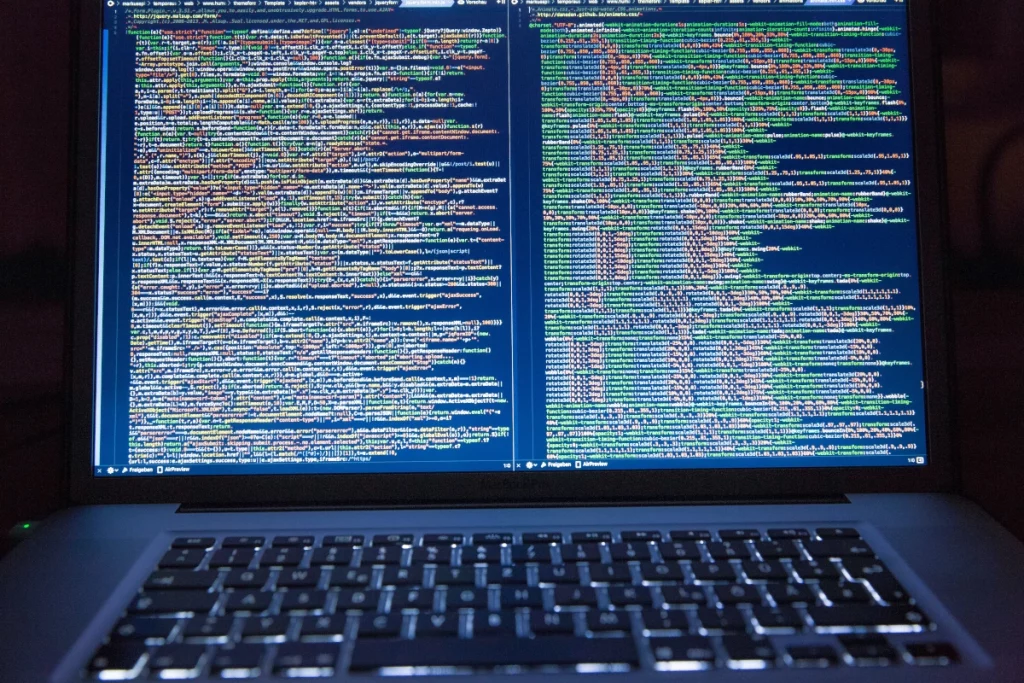
Introduction
Accounting is like a doctor’s check-up for your business – it records, classifies, analyzes, and interprets your financial transactions and data to give you a clear picture of your financial health. Without accounting, your business could be running blind, making uninformed decisions about investments, growth strategies, and financial resources. So, it’s safe to say that accounting is the financial backbone of any successful business.
It is crucial for accounting professionals to stay current with the most recent trends and advances in the field as 2023 approaches. New technology and procedures are continually emerging that have the potential to increase productivity, accuracy, and efficiency in the accounting industry. For accounting professionals to remain relevant, competitive, and successful in their jobs, being up to date on current trends is essential.
We will examine some of the most important accounting trends to monitor in 2023 in this post. We will look at the most recent advances in the sector and how they are influencing the future of accounting, from automation and artificial intelligence to sustainability and environmental accounting. This article will offer insightful information about the present and future state of the accounting profession, whether you are an accounting professional or a business owner.
Automation and Artificial Intelligence
Artificial intelligence (AI) and automation are transforming the accounting industry. The time and effort needed to execute accounting duties are being decreased through the usage of these technologies. Automation is the automatic application of technology to routine, repetitive, and manual operations, whereas AI is the imitation of human intelligence and decision-making through the use of algorithms and machine learning.
Accounting AI and automation bring a number of benefits. First, robots can reduce errors and improve accuracy since they are less likely to make mistakes than humans. Second, automated processes can save time and increase productivity because they often finish tasks much faster than manual ones. Thirdly, they provide accounting professionals more time to engage in more challenging and strategic tasks, like the analysis and interpretation of financial data.
But it’s not fully apparent how automation and AI might affect the accounting industry. Although these technologies can increase productivity and precision, they might also result in job losses in the accounting sector. As automation and AI grow more commonplace in the sector, accounting professionals may need to acquire new skills and adapt to new jobs.
Robotic process automation (RPA), which is used to automate repetitive operations like data entry and report production, is an example of automation and AI tools in accounting. Common accounting questions can also be addressed by AI-powered chatbots, along with customer service. Financial data analysis using machine learning algorithms can reveal trends and patterns that might help in decision-making.
Blockchain and Cryptocurrencies
Blockchain technology and cryptocurrencies have revolutionized the financial industry in ways that were unimaginable just a few years ago. Blockchain technology is a way of recording and storing data securely and transparently, and cryptocurrencies are digital currencies that use this technology to enable secure and fast financial transactions.
One of the biggest advantages of blockchain technology is that it eliminates the need for intermediaries such as banks, which can reduce transaction costs and increase efficiency. This has made it possible for individuals and small businesses to access financial services that were previously out of reach.
Cryptocurrencies such as Bitcoin, Ethereum, and Litecoin are some of the most popular digital currencies. They are decentralized, meaning that they do not depend on any government or financial institution for their value or validity. Instead, their value is based on the underlying technology and the confidence of their users.
One of the biggest advantages of cryptocurrencies is that they are fast and secure, with transactions being processed within seconds or minutes. This has made them ideal for international transactions, especially in countries with unstable currencies or where there are restrictions on transferring money.
However, cryptocurrencies are not without their challenges. One of the biggest concerns is their volatility, with the value of cryptocurrencies fluctuating rapidly over short periods. This can make them risky investments and unpredictable for businesses that accept them as payment.
Another concern is their association with illegal activities such as money laundering and terrorism financing. This has led to increased regulatory scrutiny, with some governments banning cryptocurrencies altogether.
Despite these challenges, blockchain technology and cryptocurrencies have the potential to transform the financial industry and drive innovation. With new applications and use cases emerging, it has become clear that these technologies are here to stay.
Cloud-based Accounting Software
Cloud-based accounting software, also known as online accounting software, is a type of software that allows you to manage your financial information and transactions through the Internet. This means that you do not need to install the software on your computer, as everything is hosted remotely on the software provider’s servers.
Cloud-based accounting software provides a range of features to help you manage your finances, these include:
- Invoicing: generate and send invoices to clients
- Expense tracking: keep track of your expenses and receipts
- Financial reporting: generate financial statements and reports
- Bank reconciliation: automatically match transactions with your bank statement
- Budgeting: create budgets and track your spending
- Payroll: manage your employee payroll information
Cloud-based accounting software allows you to access your financial information from anywhere, providing real-time data and insights to help you make informed financial decisions. It also allows for collaboration across different departments or team members, as multiple users can access the software at the same time.
Sustainability and Environmental Accounting
Sustainability and environmental accounting are becoming increasingly important for businesses as they seek to manage their impact on the environment and contribute to a sustainable future. Sustainability accounting involves measuring and reporting on a company’s social and environmental performance, while environmental accounting focuses specifically on the financial implications of environmental issues.
Accounting for sustainability and the environment is important for several reasons. Firstly, it helps businesses understand and manage their impact on the environment, which is becoming increasingly important for customers, investors, and other stakeholders. Secondly, it can identify areas where cost savings can be made through sustainable practices, such as reducing energy and water consumption. Finally, it can help businesses meet regulatory requirements and demonstrate their commitment to sustainability.
Trends in sustainability and environmental accounting include the use of carbon accounting, which involves measuring and reporting on a company’s greenhouse gas emissions, and the adoption of sustainable supply chain practices. There is also a growing emphasis on reporting on social and environmental performance in addition to financial performance, through initiatives such as the Global Reporting Initiative (GRI) and the Sustainability Accounting Standards Board (SASB).
Examples of sustainability and environmental accounting practices include the use of renewable energy sources, such as solar and wind power, to reduce carbon emissions and energy costs. Companies are also adopting circular economy practices, such as recycling and upcycling, to reduce waste and minimize their environmental impact. Another example is the use of green bonds, which are used to finance environmentally friendly projects and are becoming increasingly popular among investors.
Data Analytics and Business Intelligence
Data analytics and business intelligence (BI) are increasingly being used in accounting to provide insights into financial data and help businesses make informed decisions. Data analytics involves using software tools to analyze large sets of data and identify patterns and trends. BI, on the other hand, involves using data analytics to create visualizations and reports that can be used to inform business decisions.
There are several benefits of using data analytics and BI in accounting. Firstly, it can help businesses identify areas where cost savings can be made, such as by identifying inefficiencies in the supply chain. Secondly, it can help businesses make more accurate forecasts and predictions, such as predicting future sales trends. Finally, it can provide insights into customer behavior and preferences, which can be used to inform marketing and sales strategies.
Examples of data analytics and BI tools in accounting include software such as Tableau, Power BI, and QuickBooks Online Advanced. These tools provide businesses with the ability to create custom dashboards and reports, as well as to analyze data in real time. For example, businesses can use data analytics to identify patterns in customer behavior, such as the products that are most commonly purchased together, and use this information to create targeted marketing campaigns.
Wrap Up
As we move into 2023, the field of accounting is continuing to evolve rapidly, driven by new technologies and changing business practices. In this article, we have explored several key trends that are shaping the future of accounting, including automation and AI, blockchain and cryptocurrencies, sustainability and environmental accounting, and data analytics and business intelligence.
All in all, automation and AI are streamlining accounting processes and increasing efficiency, while blockchain and cryptocurrencies are creating new opportunities for secure and transparent financial transactions. Sustainability and environmental accounting are becoming essential for businesses that want to operate in a socially and environmentally responsible way, and data analytics and BI are providing insights into financial data to help businesses make informed decisions.
As accounting professionals, it is important to adapt to these changing trends and embrace new technologies and practices. By doing so, we can help our clients stay ahead of the curve and maximize their financial performance. This may involve developing new skills and expertise, such as in data analytics or blockchain technology, and staying up-to-date with the latest accounting regulations and standards.

